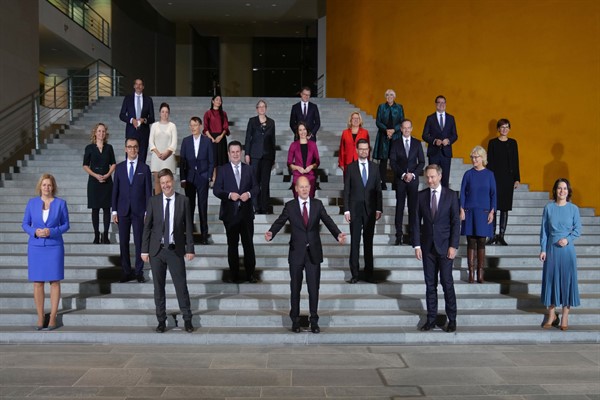Olaf Scholz of the center-left Social Democratic Party, or SPD, was sworn in yesterday as Germany’s ninth chancellor, ending the 16-year tenure of Angela Merkel and her center-right Christian Democratic Union, or CDU. But while in other countries a swing from the right to the left might herald significant change politically, this is unlikely to be the case in Germany, which is known for its preference for pragmatic, consensus-oriented political leadership.
A key point to note is that Scholz was a member of the previous government, serving as vice chancellor and finance minister in Merkel’s fourth and final Cabinet, as part of a grand coalition between the Christian Democrats and the Social Democrats. And even though he is from a different party, Scholz has been positioning himself as representing continuity with Merkel, including by alluding to their shared origins from northern Germany at yesterday’s handover ceremony.
But a crucial distinction between the two leaders is that Scholz, unlike Merkel, is not in a grand coalition with his party’s main opposition. Instead, the SPD formed a government with the Greens and the pro-market Free Democratic Party, or FDP. This means that there will likely be some policy changes ahead. One such shift may come in the arena of foreign policy, given that the Greens—who negotiated for and got the Foreign Ministry portfolio during government formation talks—are regarded as more hawkish on Russia and China, and much more ambitious on foreign policy more broadly, than either the SPD or the CDU.

